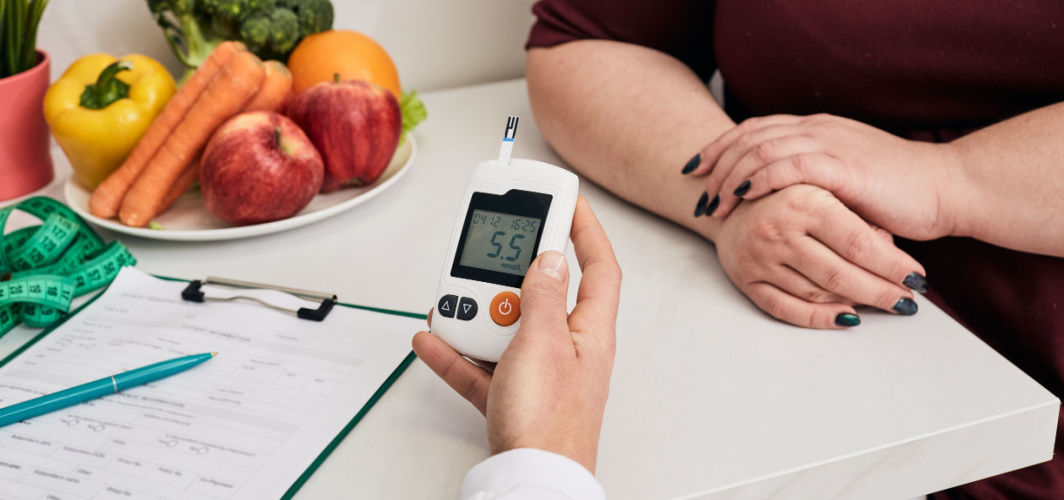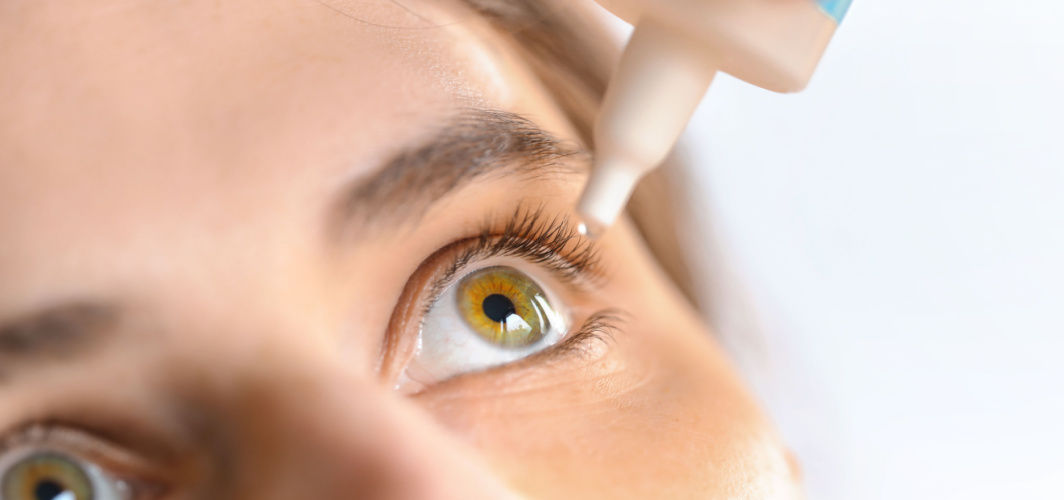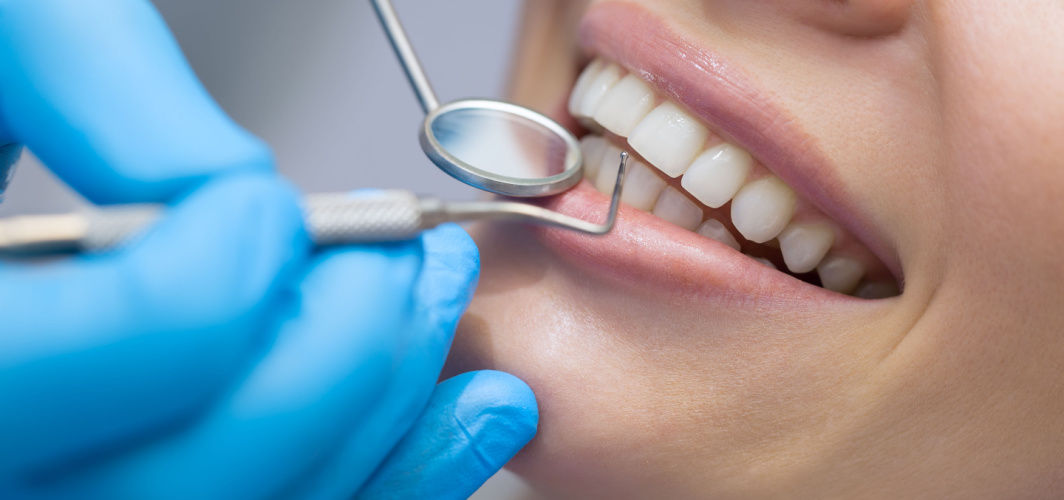Diabetes Management
Diagnosing Diabetes Early: Know How To Prevent Complications
8 min read
By Apollo 24|7, Published on - 29 June 2023, Updated on - 12 December 2023
Share this article
0
0 like

Diabetes is a challenging health condition that requires lifelong management. Making changes to your lifestyle, choosing healthier foods, and taking medications are necessary to control its serious complications. However, all of this can be prevented by detecting and treating diabetes early. If you experience excessive thirst, frequent urination, and tiredness, it's important to get your blood sugar checked. Catching diabetes early can save lives and improve quality of life. This article explores the importance of early diabetes screening and its benefits.
Types of Diabetes
Recognizing the importance of early detection of type 2 diabetes is crucial for effective management and prevention of its complications.
- Type 1 Diabetes: This type starts in childhood or adolescence, in which the immune system attacks and destroys insulin-producing cells in the pancreas. People with type 1 diabetes need lifelong insulin injections or an insulin pump.
- Type 2 Diabetes: It is the most common type that often develops in adulthood but can even occur in children. In this type, the body doesn't make enough insulin or doesn't use it properly, causing damage to vital organs. It can often be managed with lifestyle changes like healthy eating and exercise. Medications or insulin may also be needed.
Other types of diabetes include:
- Gestational diabetes happens during pregnancy but usually goes away after childbirth.
- Prediabetes is when blood sugar levels are higher than normal but not yet equal to diabetes. It warns of a higher risk of developing type 2 diabetes without lifestyle changes.
Benefits of Early Intervention for Diabetes
There are various benefits of early diabetes diagnosis, which include:
1. Getting treatment quickly: Finding out early means treatment can start sooner. This helps control blood sugar levels better and stops the disease from worsening.
2. Preventing complications: If diabetes isn't treated well, it can cause problems with the heart, blood vessels, kidneys, eyes, and nerves. Discovering diabetes early helps prevent these complications.
3. Making lifestyle changes: Early diagnosis and treatment of diabetes gives a chance to make a healthy diet, exercise, and weight changes. These changes are essential for managing diabetes effectively.
4. Learning and managing: When diabetes is found early, people can learn how to monitor their blood sugar, take medication, go for regular check-ups, and recognize signs of complications.
5. Getting support: Healthcare professionals can provide emotional support, counselling, and resources to help people deal with the challenges of living with diabetes.
Complications Associated with Diabetes
Undiagnosed or untreated diabetes can lead to various health issues. Detecting diabetes early can prevent complications such as:
1. Heart issues: High blood sugar levels can damage blood vessels, leading to heart disease, heart attacks, and strokes.
2. Kidney damage: Diabetes can affect the kidneys and cause diabetic nephropathy. If not managed properly, it can lead to kidney failure.
3. Nerve damage: High blood sugar levels can damage the nerves, causing pain, numbness, tingling, and problems with digestion, urination, and sexual function.
4. Eye problems: Diabetes can damage the blood vessels in the eyes, leading to diabetic retinopathy, which can cause vision loss or blindness.
5. Foot problems: Poor circulation and nerve damage in the feet can increase the risk of foot ulcers, infections, and, in severe cases, amputation.
6. Increased infections: Diabetes weakens the immune system, making it easier to get infections in the urinary tract, skin, and gums.
Screening and Diagnostic Tests
Doctors use different tests to diagnose diabetes and prediabetes, which can include:
1. Fasting plasma glucose test: This test measures your blood sugar level after not eating or drinking anything (except water) overnight. It helps determine if your blood sugar is within a normal range.
2. HbA1c test: This blood test gives an average of your blood sugar levels over the past three months. It shows how well you have been managing your blood sugar over time.
3. Random plasma glucose test: It can be done at any time, regardless of when you last ate. It is used when symptoms of diabetes are present, and fasting is impossible.
4. Glucose challenge test: This test is performed during pregnancy to check for gestational diabetes. After drinking a sweet liquid, your blood sugar levels are measured to see how your body processes the sugar.
5. Oral glucose tolerance test (OGTT): This test detects type 2 diabetes, prediabetes, and gestational diabetes. It involves measuring fasting blood glucose, followed by consuming a sugary drink, and measuring blood sugar levels again to see how your body handles the sugar.
Symptoms of Diabetes
Signs and symptoms of diabetes can vary, but individuals need to be aware of the common ones. Here are some early warning signs of diabetes:
- Frequent Urination
- Excessive Thirst
- Unexplained Weight Loss
- Fatigue
- Increased Hunger
- Blurred Vision
- Slow Healing
- Numbness or Tingling
- Recurrent Infections
There are several factors that can increase the risk of developing diabetes, such as:
- Obesity: Being overweight can increase the risk of developing diabetes.
- Family History: Having a close family member with diabetes raises the risk.
- Sedentary Lifestyle: Lack of physical activity increases the likelihood of developing diabetes.
- Unhealthy Diet: Consuming a diet high in processed foods, sugary beverages, and unhealthy fats contributes to the risk.
- Age: The risk of diabetes increases with age, particularly after 45 years.
- Ethnicity: Certain ethnic groups, such as African Americans, Hispanics, Native Americans, and Asians, have a higher risk of diabetes.
- Gestational Diabetes: Women who had gestational diabetes during pregnancy have a higher risk of developing type 2 diabetes later in life.
Tips for Prevention and Delaying Diabetes Onset
You can prevent or delay the onset of diabetes by following these tips:
- Follow a balanced diet and limit sugary & processed foods.
- Engage in regular physical activity for at least 30 mins, 5 days a week.
- Maintain a healthy weight.
- Avoid prolonged sitting and be physically active throughout the day.
- Monitor blood sugar levels and seek professional guidance if at risk.
- Limit alcohol consumption.
- Quit smoking.
- Manage stress through techniques like meditation or mindfullnes.
Early Detection and Treatment Options
Early detection of diabetes allows for proactive management and positive outcomes. Treatment options include:
- Lifestyle Changes: Adopting a healthy diet, regular exercise, and weight management.
- Medication: Oral medications or injections to regulate blood sugar levels.
- Insulin Therapy: Injections or pumps for individuals with type 1 or advanced type 2 diabetes.
- Blood Sugar Monitoring: Regular monitoring at home using a glucometer.
- Do regular check-ups: Routine health examinations aid in the early diagnosis of diabetes complications, monitoring progress, and providing preventive care.
Takeaway
It's important to find out if you have diabetes early on to avoid problems and stay healthy. See a doctor if you notice signs like frequent urination, excessive thirst, unexplained weight loss, or tiredness. By eating healthy, checking your blood sugar, taking medicine if needed, and getting regular check-ups, you can take control of diabetes and live a better life.
You can also try the Apollo 24|7 Diabetes Self-Management Tool to log your sugar values, track patterns, know all about food nutrition and more.
For more information, Consult Apollo’s Expert Diabetologists
FAQs
Q. Can insufficient sleep lead to prediabetes?
Relative evidence indicates that inadequate sleep can negatively affect glucose tolerance and increase the risk of developing prediabetes.
Q. What foods to avoid if you have prediabetes?
It is recommended to limit the consumption of sugary beverages, cakes, cookies, candy, and snacks and control portion sizes of refined carbohydrate foods like white bread, white rice, and white pasta.
Q. How can I adapt to living with diabetes?
Managing blood sugar levels involves adopting a healthy diet low in carbs, added sugars, saturated fat, and sodium. Consulting with a diabetes care and education specialist can help create a personalized meal plan.
Q. Which organs can be affected by diabetes?
Diabetes can impact various organs, such as the eyes, heart, nerves, feet, and kidneys. Understanding these potential effects is crucial for following a treatment plan and maintaining overall health.
Q. Does genetics influence diabetes?
If you have a family history of diabetes, including a parent, sibling, or close relative, your likelihood of developing diabetes or prediabetes is higher. It is essential to discuss your family's health history with a doctor.
Medically reviewed by Dr Sonia Bhatt.
Diabetes Management
Consult Top Diabetologists
View AllLeave Comment
Recommended for you

Diabetes Management
Diabetes and Dry Eyes: Is there a Connection?
Dry eye syndrome is one of the most common eye complications caused due to diabetes. Tears that are made up of mucus, water and oil keep the surface of your eyes clean and help you see clearer. When lacrymal glands (responsible for tear production) do not produce adequate tears, it can lead to dry eye syndrome. Effective blood sugar management and a healthy lifestyle are crucial in preventing and alleviating these diabetic eye conditions.

Diabetes Management
Can Diabetes Impact Dental Health?
Diabetes affects dental health, fostering gum disease, tooth decay, and dry mouth due to elevated blood sugar levels. Managing it entails consistent blood sugar control and proper oral hygiene. Regular dental checkups and early intervention are vital. Preventive measures like glycemic control and stress management help protect oral health effectively.

Diabetes Management
Can Piercings and Tattoos Affect Blood Sugar Levels?
Tattoos and piercings don't directly affect blood sugar levels, but stress, complications during the process and infections while healing may impact them. Individuals with diabetes should exercise caution and refrain from getting tattoos in areas with poor blood circulation. Consulting their healthcare provider to make a well-informed decision and maintaining a healthy lifestyle during these procedures to ensure proper diabetes management is advised.
Subscribe
Sign up for our free Health Library Daily Newsletter
Get doctor-approved health tips, news, and more.
Visual Stories

8 Fruits That are Incredibly Healthy for Diabetes
Tap to continue exploring
Recommended for you

Diabetes Management
Diabetes and Dry Eyes: Is there a Connection?
Dry eye syndrome is one of the most common eye complications caused due to diabetes. Tears that are made up of mucus, water and oil keep the surface of your eyes clean and help you see clearer. When lacrymal glands (responsible for tear production) do not produce adequate tears, it can lead to dry eye syndrome. Effective blood sugar management and a healthy lifestyle are crucial in preventing and alleviating these diabetic eye conditions.

Diabetes Management
Can Diabetes Impact Dental Health?
Diabetes affects dental health, fostering gum disease, tooth decay, and dry mouth due to elevated blood sugar levels. Managing it entails consistent blood sugar control and proper oral hygiene. Regular dental checkups and early intervention are vital. Preventive measures like glycemic control and stress management help protect oral health effectively.

Diabetes Management
Can Piercings and Tattoos Affect Blood Sugar Levels?
Tattoos and piercings don't directly affect blood sugar levels, but stress, complications during the process and infections while healing may impact them. Individuals with diabetes should exercise caution and refrain from getting tattoos in areas with poor blood circulation. Consulting their healthcare provider to make a well-informed decision and maintaining a healthy lifestyle during these procedures to ensure proper diabetes management is advised.


